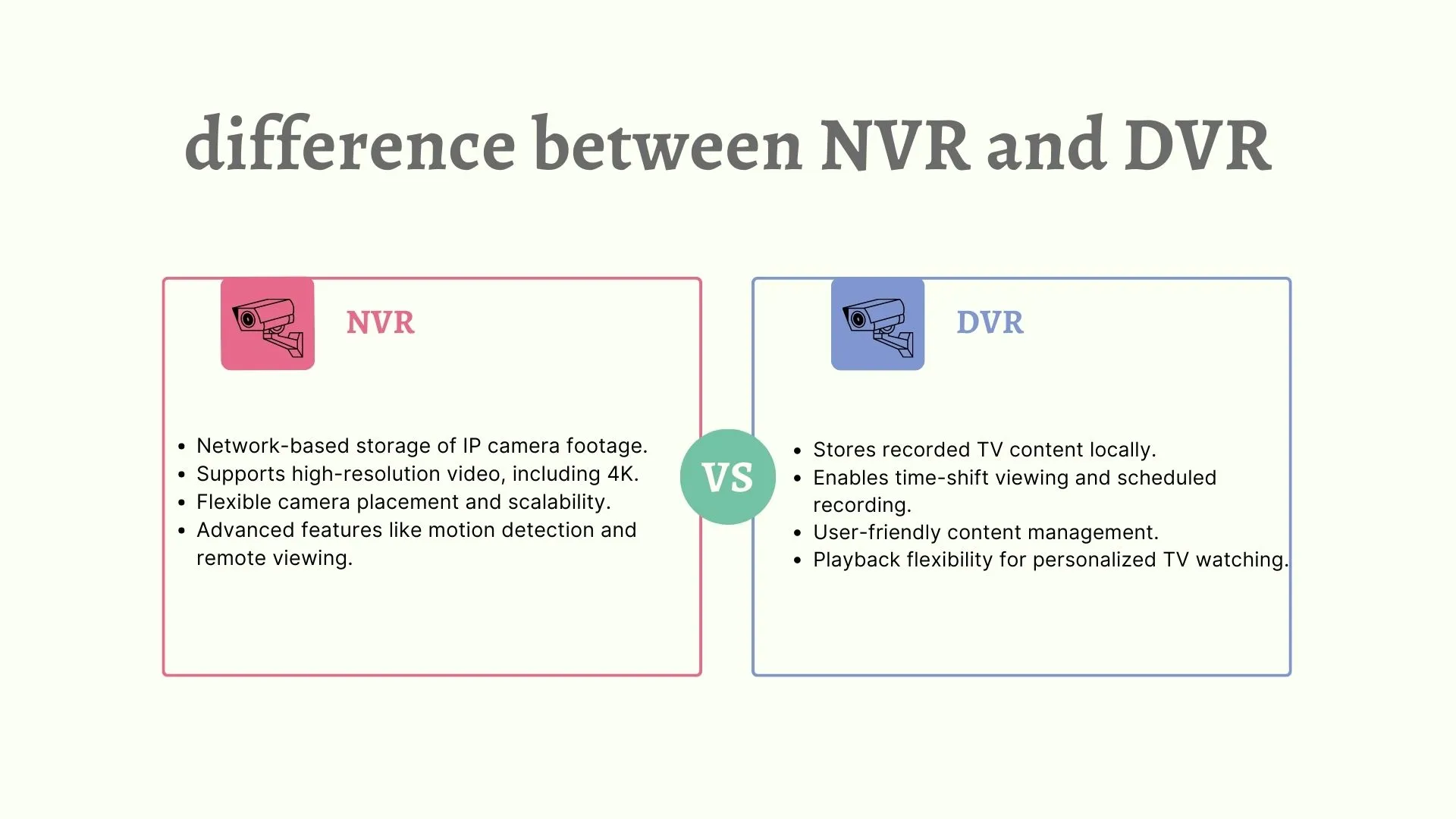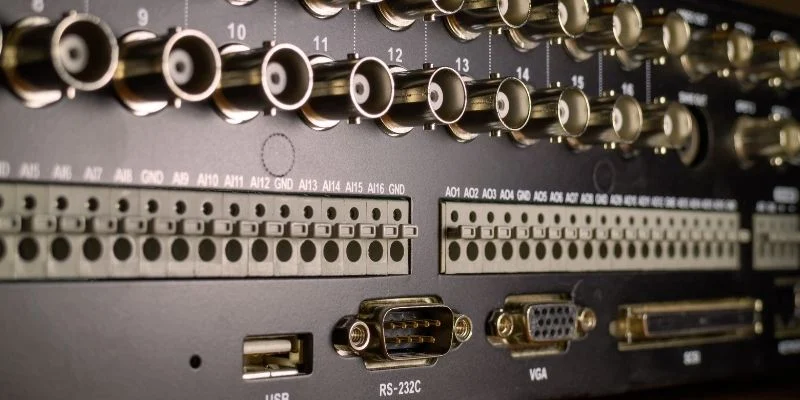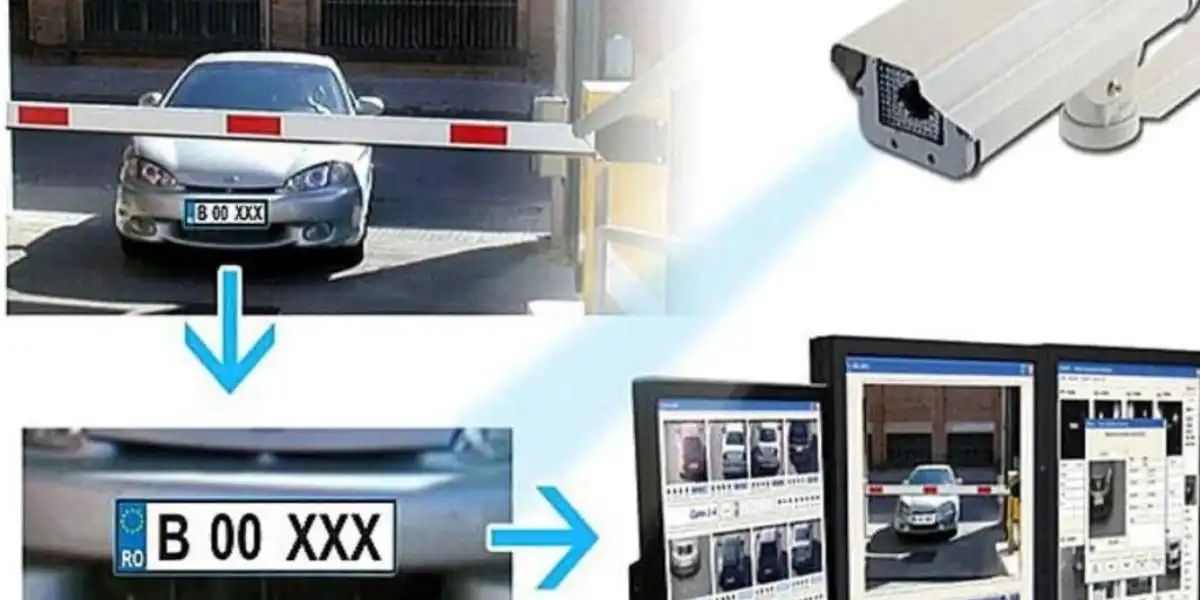
In today’s rapidly advancing technological landscape, Security has become a paramount concern for individuals and businesses alike. As the demand for surveillance systems continues to grow, two prominent options have emerged:
Differences between NVR and DVR security cameras. Understanding the key Differences between NVR and DVR is crucial for making informed decisions when it comes to safeguarding your property and assets.
Differences between NVR and DVR
At its core, The Differences between NVR and DVR lie in how they handle and store video footage. Both systems are designed to capture and record surveillance footage, but their underlying technologies and capabilities set them apart.
To understand the Differences between NVR and DVR, NVR, or Network Video Recorder, operates by encoding and processing video data at the camera source itself. This means that the video feeds are first digitized and then transmitted over a network, typically through Ethernet cables or Wi-Fi. The encoded video data is then stored on the NVR’s hard drive, which can be located locally or remotely.
On the other hand to understand the Differences between NVR and DVR, or Digital Video Recorder, processes, and stores video data differently. In a DVR system, the cameras capture analog video signals, which are then converted into digital format within the DVR unit itself. The DVR recorder then compresses and stores the digital footage on its internal hard drive.
Advantages of NVR Cameras
One of the notable advantages of NVR camera systems is their ability to support higher-resolution video streams. NVRs are better equipped to handle high-definition and even ultra-high-definition (4K) video feeds, making them ideal for situations where detail and clarity are paramount, such as in large commercial spaces or outdoor surveillance.
Furthermore, NVR systems offer enhanced flexibility in terms of camera placement. Since NVR cameras transmit data over a network, they can be positioned at greater distances from the NVR unit without experiencing significant loss in video quality. This makes NVR setups more adaptable to larger properties or locations with complex layouts.
Advantages of DVR Cameras
DVR systems, while not as technologically advanced as NVRs, still have their merits. One of the key advantages of DVR security cameras is their cost-effectiveness, making them an attractive option for budget-conscious consumers. Additionally, DVR systems are relatively easier to install and set up, making them a practical choice for residential use or smaller businesses.
DVRs are also compatible with a wide range of analog cameras, which can help users leverage their existing CCTV infrastructure without requiring a complete overhaul. This backward compatibility can significantly reduce initial investment costs for those looking to upgrade their surveillance capabilities.
Differences between NVR and DVR: Choosing the Right System for Your Needs

In the market, you’ll find a plethora of options from leading brands such as Hikvision, Dahua, Reolink, and more, each offering their own variations that show the Differences between NVR and DVR camera systems. Hikvision NVR and Dahua NVR systems, for instance, provide cutting-edge network-based surveillance solutions that cater to the demands of modern security applications.
Reolink NVR systems, while relatively newer, have gained traction for their user-friendly interfaces and simplified setup procedures. These systems are designed to provide a seamless transition for those who may be new to the world of networked surveillance.
Cost Differences Between NVR and DVR
When exploring the Differences between NVR and DVR, one critical factor to consider is the price. NVR camera systems, due to their advanced technology and support for high-resolution video, tend to be pricier than their DVR counterparts. This cost discrepancy can influence your decision, especially if you have budget constraints.
The cost Differences between NVR and DVR systems can vary based on several factors, including the type of cameras used, the number of cameras, the desired features, and the brand or manufacturer. Here’s a general overview of cost differences:
DVR Cost Factors:
- Analog vs. Hybrid DVR: If you have existing analog cameras and choose to use a DVR with them, the cost of the DVR itself is relatively lower than that of an NVR. Analog DVRs are generally more cost-effective than hybrid DVRs, which can support both analog and IP cameras.
- Number of Channels: The cost of a DVR increases with the number of camera channels it can support. DVRs come in various channel configurations, typically ranging from 4 to 32 channels or more.
- Resolution: DVRs designed for analog cameras may cost less than those with higher-resolution capabilities. Analog cameras tend to have lower upfront costs than high-resolution IP cameras.
- Features: Advanced features such as remote access, motion detection, and storage capacity can affect the price of DVR systems. More feature-rich DVRs are typically more expensive.
NVR Cost Factors:
- IP Camera Quality: The cost of an NVR system largely depends on the quality and resolution of the IP cameras used. Higher-resolution cameras generally come with a higher price tag.
- Number of Channels: Similar to DVRs, NVRs support varying numbers of camera channels, which can significantly impact the cost. Systems with a higher number of channels will be more expensive.
- Storage Capacity: NVRs often require larger storage solutions, especially when dealing with high-resolution IP cameras. Additional storage capacity can increase the overall cost of the system.
- Advanced Features: NVRs offer advanced features like remote monitoring, mobile app integration, and support for video analytics. These features may add to the cost.
- Brand and Manufacturer: The brand and manufacturer of the NVR system can also influence the price. Well-known brands may charge a premium for their products.
- Network Infrastructure: Setting up an NVR system may require a more robust network infrastructure, which can incur additional costs for network equipment and cabling.
Component’s Difference Between NVR and DVR Systems:
NVR System Components:
NVR: Consider the NVR to be the system’s main component. Video recordings are stored and managed by it. it uses the network to collect and save IP camera videos, Similar to a digital device.
IP cameras: Videos are recorded by these cameras. In contrast to conventional cameras, which transmit video via cables, these devices transfer video via networks.
Storage: All of the video recordings are saved by the NVR on a network-connected hard drive, SSD, or other device.
Software: The NVR comes with specialized software that enables you to see, manage, and playback the video.
DVR System Components:
DVR: The DVR is the principal control community for this system. it stores and manages video recordings, Similar to the NVR but it works with older analog cameras.
Digital cameras: These cameras record video and transmit it via cable to the DVR.
In contrast to IP cameras, which make use of the network.
Storage: All of the video recordings are saved by the NVR on a network-connected hard drive, SSD, or other device.
Software: The software that comes with specialized software that enables you to see, manage, and playback the video.
The Future of Surveillance: Differences between NVR and DVR
As technology continues to evolve, the Differences between NVR and DVR camera systems is likely to widen. NVRs are expected to continue pushing the boundaries of video quality and remote access capabilities, while DVRs may become increasingly specialized for specific use cases or phased out in favor of more advanced solutions.
In Conclusion, the Differences between NVR and DVR security cameras lie in their fundamental approach to video processing, storage, and transmission. While NVRs offer superior video quality and flexibility, DVRs are cost-effective and suitable for simpler setups. Choosing the right system depends on your specific needs, budget, and the level of technological sophistication you require in your surveillance efforts. As the industry advances, staying informed about these distinctions will empower you to make the best choice for your security requirements.
Disclaimer:
This blog post is intended to provide general information about the Differences between NVR and DVR security cameras. It does not constitute professional advice or recommendations for specific products. For personalized guidance, it is recommended to consult with security experts or professionals in the field.









